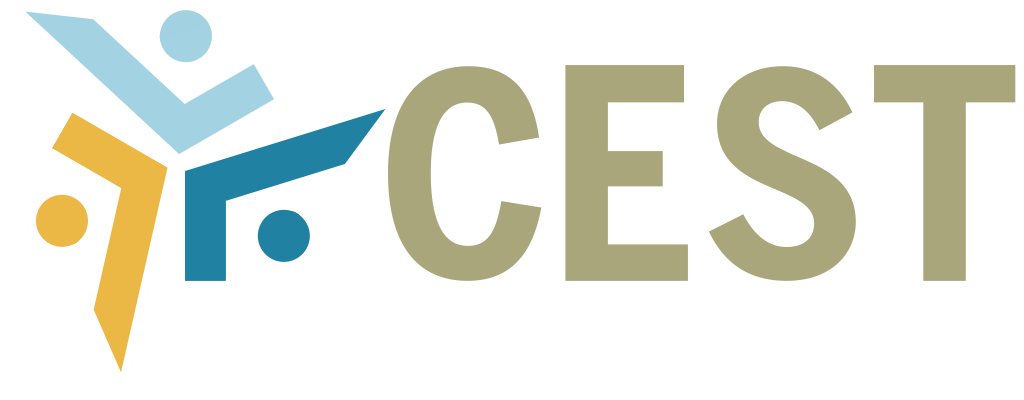This entry is only available in Brazilian Portuguese.
Category: Publicações
CEST published a White Paper on Open Education
Centro de Estudos Sociedade e Tecnologia (CEST) launches a White Paper on Open Education. These documents from CEST aim to discuss the impact of new technologies on society. The current paper is authored by Fabio Nascimbeni, a researcher at CEST, graduated in Economics with a specialization in international administration and…
CEST released its White Paper on Intellectual Property
The Centro de Estudos Sociedade e Tecnologia (CEST or Centre for Society and Technology Studies) released its White Paper on Intellectual Property. The documents from CEST aim to discuss the impact of new technologies on society. The current article is authored by Maristela Basso, P.H.D., lawyer and professor of International…
(Português) [Conteúdo em Francês] A exceção cultural na era digital
(Português) O grupo de juristas RIJDEC (Réseau international de juristes pour la diversité des expressions culturelles), de que participa Lilian Hanania, pesquisadora do CEST, publica relatório sobre “Le renouvellement de l’exception culturelle à l’ère numérique”.
Para acessar o conteúdo completo acesse esta postagem.
CEST releases its first White Paper
(Português) [Conteúdo em Frânces] Entrevista com Lilian Hanania sobre a Convenção da UNESCO de 2005 e a Diversidade das Expressões Culturais
Entrevista com Lilian Hanania, colaboradora do CEST, sobre a Convenção da UNESCO de 2005 sobre a Diversidade das Expressões Culturais, pp. 6-9 da revista online Culture, commerce et numérique (CEIM, Universidade de Montréal, e Organização Internacional da Francofonia) de agosto de 2015. Clique no título da notícia para acessa-la.
Cultural Diversity and New Technologies – Report by U40
The Trade and Culture Debate in the Digital Era: How is the UNESCO Convention on the Diversity of Cultural Expressions Applicable in the Creative Economy?
Lilian Hanania’s contribution to the International Conference held at the University of Laval, Québec, Canada, on May 28-30, 2015, to celebrate the tenth anniversary of the 2005 UNESCO Convention on the Diversity of Cultural Expressions (CDCE). The work starts from the notion of “cultural-exception” to look into the concept of “cultural diversity” consecrated under the CDCE and how the latter affects the “trade and culture” debate within a context of new technologies.
Click on post title to access full content
The operational guidelines and other techniques to implement the Convention on the Diversity of Cultural Expressions within the context of digital technologies
On the occasion of the Conference of Parties of the 2005 UNESCO Convention on the Protection and Promotion of the Diversity of Cultural Expressions, the RIJDEC network (Réseau international de juristes pour la diversité des expressions culturelles), which CEST collaborator Lilian Hanania participates in, makes public their report about “The operational guidelines and other techniques to implement the Convention on the Diversity of Cultural Expressions within the context of digital technologies”
Click on post title to access full content
Open Education: achievements, challenges and a proposal for reflection
Open Education is gaining ground globally and is gradually being considered as an option by universities around the world; further, the debate is reaching beyond the OER experts’ community and the forerunning universities. The paper will explore how the Open Education debate is evolving, by discussing the challenges that have been partly solved and the ones that are still to be fully tackled. We believe that the focus is moving from technological challenges, where the objective now is to be able to work and learn across platforms, legal challenges, where instruments are there to be implemented and used at different levels, and content challenge, where OER are being increasingly created, shared and repurposed, to three new kinds of challenges, corresponding to three stakeholders groups. These are pedagogical challenges, that have to do with the way teaching and learning have to change in a Open Education setting and that are the main concern of teachers, sustainability challenges, which are mainly the concern of policy makers, funding agencies and companies, which are striving for well-established business principles, and organisational challenges, mainly concerning leaders within education institutions, who are faced with the increased complexity brought by open approaches, looking for the balance between traditional and new educational practices. The paper will briefly discuss some cases ohf how these challenges are being tackled, with particular emphasis on international collaboration practices enhanced by Open Education approaches.
**Click on the title to access more information**
**Content in English**
 English
English Português
Português
